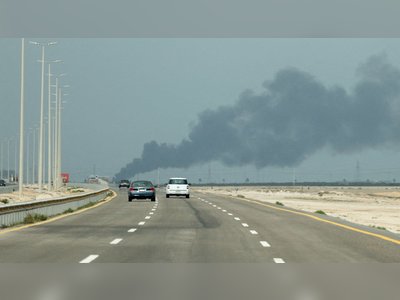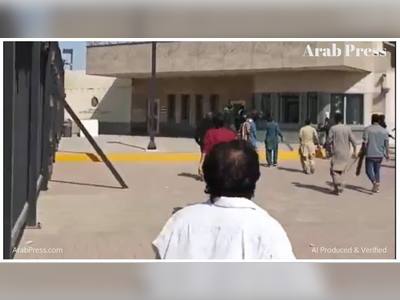
Why Dubai's healthcare sector may need to adapt to cope with retiree influx
Dubai's healthcare sector may need to adapt to dealing with more elderly patients and their specific needs after the emirate launched its retirement visa initiative.
Dubai’s population is young, with the median age being 32.6 according to Worldometer, and hence healthcare facilities in the emirate are more geared towards the medical needs of that age group rather than a post retirement age demographic.
“A majority of the residents of UAE are within the age groups of 25-45 years of age for whom medical requirements are usually limited to urban lifestyle diseases,” said Azad Moopen, founder chairman and managing director of Aster DM Healthcare. “However, with the implementation of the retirement visa scheme, an entirely new segment of people above the age of 55 years will also stay back in the UAE.”
While more retirees may present opportunities for healthcare providers in the UAE, they may need to be prepared to make changes as catering for the elderly comes with its own guidebook.
“The medical requirement of this bracket of people is significantly higher requiring advanced care facilities, higher consumption of NCD management medications, more frequent and longer hospital stays and higher need for post-recovery care and consultation,” said Moopen.
The recently announced Retire in Dubai visa scheme has opened up the option for those over 55 years old to live of their golden years in the emirate. This brings forth opportunities across several industries such as real estate, tourism and healthcare.
Having healthcare insurance has recently been dropped off the list of requirements to qualify for the retirement visa but health in itself is a chief concern among the elderly and so any city they retire to needs to have a well-developed medical sector.
Some in the UAE healthcare industry believe that the infrastructure of facilities and services is already quite solid and so what the retirees’ visa will bring is more volume.
“The health sector in the UAE and Dubai is quite developed,” said Andre Daoud, CEO of Medcare Hospitals and Medical Centres which runs four hospitals and 15 medical centres in Dubai and Sharjah.
“However the positive outcome is the fact that we will have more traffic and more demand which will help certain specialities further flourish.” Daoud gives orthopaedics as one speciality that has potential for growth among retirees, given that bones grow fragile with age.

Andre Daoud, CEO of Medcare Hospitals and Medical Centres
He added that an increased demand on certain specialities might pique the interest of potential investors to spend money on further developing them.
“There are things we can anticipate based on global profiling however we also need to look at dynamics and what is needed in the market. That is going to be an evolution not a revolution so it is not something that will happen tomorrow but will be more in line with the growth of the city and country,” said Daoud.
Two recently developed services which are potentially attractive to retirees – and for potential further investment – are homecare and telecare services which include phone consultations, lab test collections, prescription medicine delivery among others.
Both these services were developed by Dubai’s leading healthcare facilities during the pandemic as an alternative to in-person hospital visits.
Healthcare providers interviewed by Arabian Business said there is room to further grow them.

Azad Moopen, chairman and managing director of Aster Clinic
“There are certain projects that have already been implemented which could be further modified to target patients of the age group above 55 years like tele consultation and home care services, shifting the delivery model for primary healthcare to the homes of patients as per their convenience,” said Moopen. “With the high uptake of these services that we have seen, we expect them to continue to be in demand and particularly benefit the retirees in UAE.”











